What’s dialogue without action? What’s action without dialogue?
Coordinated by the University of Toronto, the launches this week with a two-day forum (Oct. 1-2) on anti-Black racism and Black inclusion.
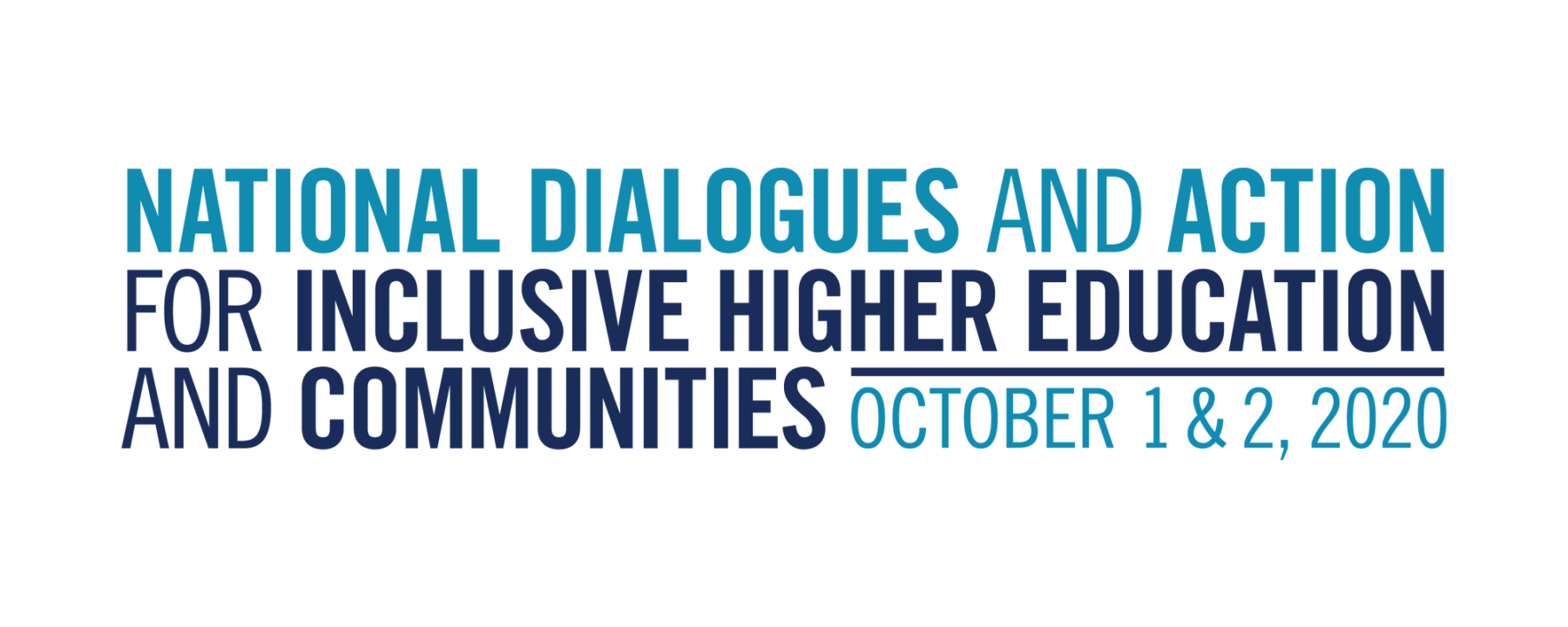 It’s the first in a series of forums that will bring ������Ƶ and dozens of other universities and colleges across Canada together in a structured national conversation to share experiences and explore and learn best practices.
It’s the first in a series of forums that will bring ������Ƶ and dozens of other universities and colleges across Canada together in a structured national conversation to share experiences and explore and learn best practices.
But organizers say what makes this initiative different is its emphasis on creating “concrete actions.” The forums will be split into two key components: a first day of discussions that address specific challenges, opportunities and barriers around particular issues, followed by a second day of extensive deliberations that will generate action items and establish accountability mechanisms to ensure lasting change.
Outcomes of the forums will be used in the development of a charter of principles and actions that participating institutions can commit to in their efforts to address issues and create structural and systemic change.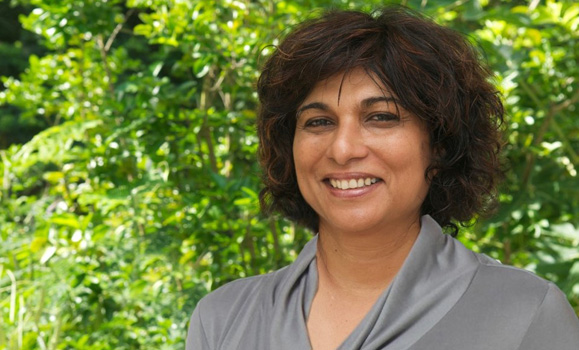
“For too long, there’s been too little coordination on issues of equity and inclusion in higher education in Canada, which is why we are excited to be partnering with our peers in this initiative to create real and lasting change, ” says Theresa Rajack-Talley (shown right), Dal’s vice-provost of equity and inclusion and a member of the National Dialogues and Action's Inter-Institutional Advisory Committee.
“The lack of diversity, equity and inclusion in institutes of higher learning and in society as a whole is a systemic issue and thus requires systemic analyses and recommendations.”
Identifying systemic issues, understanding intersecting identities
This week’s inaugural forum on anti-Black racism and Black inclusion will provide participants with an opportunity to choose from amongst nine interactive online dialogues with panelists from academia and beyond to address:
•���� ��student, faculty, and staff access and success;
•���� ��inclusive teaching, learning and curricula;
•���� ��inclusive decision-making structures;
•���� ��responsibilities and obligations of non-Black peers;
•���� ��mentorship and more.
Concurrent dialogues will explore the relevant issues considering the diverse and intersecting identities within the Black community, with a focus on systemic anti-Black racism, key barriers to Black inclusion and approaches to identifying and responding to them.
Barbara Hamilton-Hinch (shown below left), an assistant professor in the School of Health and Human Performance and long-time champion and leader of Black inclusion efforts at Dal, will present as part of the Inclusive Teaching, Learning and Curricula panel group this week.
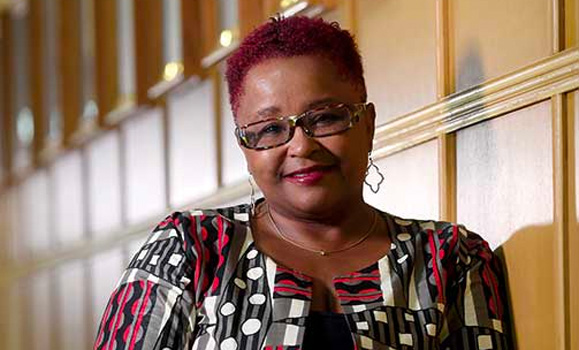 She says she’ll be bringing a message that both racialized and non-racialized faculty alike must be part of the solution to adapt curriculum in Canada to ensure it reflects an increasingly diverse student body.
She says she’ll be bringing a message that both racialized and non-racialized faculty alike must be part of the solution to adapt curriculum in Canada to ensure it reflects an increasingly diverse student body.
“Every subject has a way of diversifying its curriculum if you are committed. All that it takes is a little bit of work. You can find Black scientists, you can bring them in as guest speakers, you can assign readings or literature written by people of African descent,” she says.
Dr. Hamilton-Hinch says she’d love to see momentum build at Dal and nationally for a required course on anti-Black racism and Indigenous issues for every student at post-secondary institutions in Canada.
An opportunity for action
For Physics Professor Kevin Hewitt, chair of ������Ƶ Senate and a panelist on the faculty access and success sessions, this week's National Dialogues provide an opportunity to set priorities.
"In a complex, multi-stakeholder environment that is the university, setting priorities among a plethora of initiatives and interests is critical to advancing the outcomes that will emerge from the National Dialogues," he says.
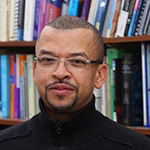 Dr. Hewitt (shown right) notes that he'd like to see Senates and Boards at institutions across the country hold administrative leaders accountable for action by establishing firm timelines and regular reporting that will address any recommendations. One particular measure he plans to advocate for in his remarks is cluster hires of Black faculty to help redress representation gaps and retention issues that have persisted despite laudable policy interventions.
Dr. Hewitt (shown right) notes that he'd like to see Senates and Boards at institutions across the country hold administrative leaders accountable for action by establishing firm timelines and regular reporting that will address any recommendations. One particular measure he plans to advocate for in his remarks is cluster hires of Black faculty to help redress representation gaps and retention issues that have persisted despite laudable policy interventions.
“Employment equity legislation permits and encourages the use of preferential/ designated hires for this purpose, to undo the biases that prevent fair assessment of candidate credentials, for which (I believe) it is impossible to overcome with unconscious bias training,” he said, mentioning ������Ƶ's Diversity Faculty award program (modelled on the NSERC University Faculty Award) as an excellent example of the application of this preferential hiring principle.
“A couple hours training cannot undo tens of thousands of hours of exposure to anti-Black views,” he added. “It takes a real commitment to re-education.”
Dr. Rajack-Talley will set the stage for day two of the forum, delivering remarks on considerations for action at the individual and institutional levels.
Nearly 50 ������Ƶ faculty and staff will be participating in the event this week, with the follwing individuals also offering insight on panels during the forum:
%20-%20edited.jpg) Quenta Adams, director of Student Academic Success, will take part in the Student Access and Success panel.
Quenta Adams, director of Student Academic Success, will take part in the Student Access and Success panel.
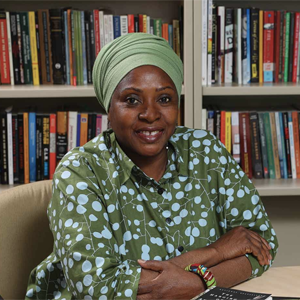 Afua Cooper, professor in the Department of Sociology and Social Anthropology, will take part in the Mentoring, Support Networks, and Wellbeing panel.
Afua Cooper, professor in the Department of Sociology and Social Anthropology, will take part in the Mentoring, Support Networks, and Wellbeing panel.
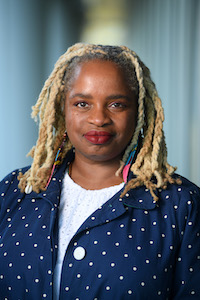 OmiSoore Dryden, associate professor in the Department of Community Health and Epidemiology, will take part in the Race-Based Data Collection and Use session.
OmiSoore Dryden, associate professor in the Department of Community Health and Epidemiology, will take part in the Race-Based Data Collection and Use session.
��
For more information, .

